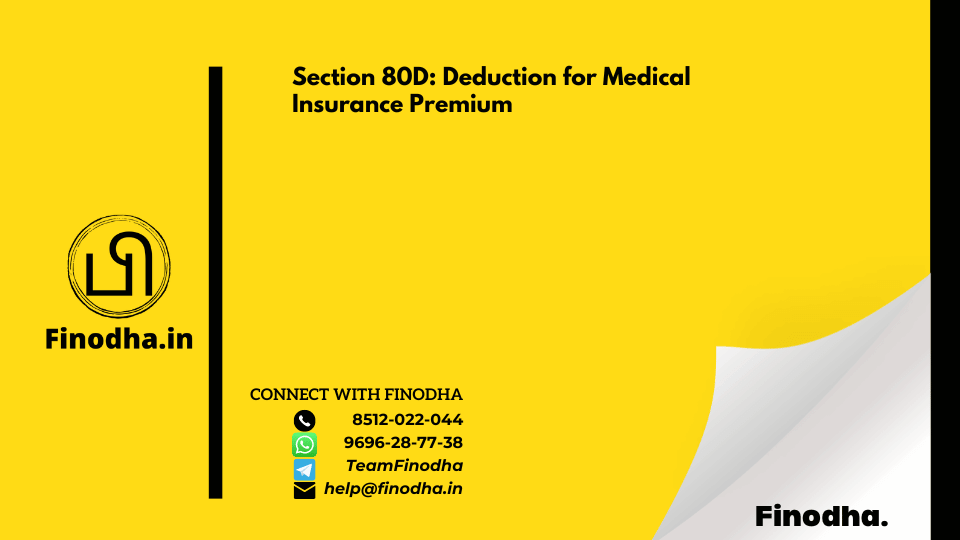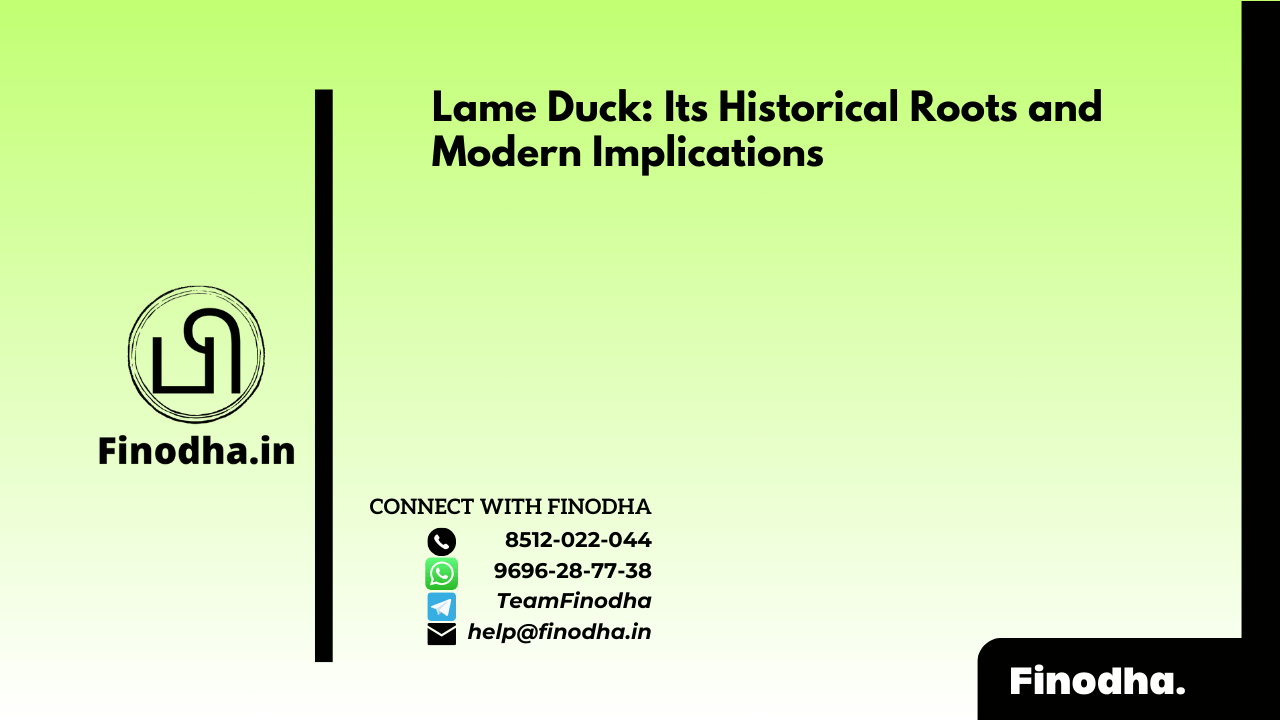Important keyword: Chapter VI-A, Section 80D.
Table of Contents
Section 80D: Deduction for Medical Insurance Premium
In light of the COVID-19 pandemic, the value of having medical insurance has become clear as unforeseen health crises can lead to significant financial strain. With healthcare expenses rising and instances of illnesses on the rise, having health insurance has transformed into a vital necessity. Besides offering crucial financial support during medical emergencies, investing in health insurance also brings the added benefit of reducing tax burdens. The government encourages such investments by offering deductions under section 80D, allowing taxpayers to claim benefits up to INR 1,00,000.
What is Deduction under section 80D?
Section 80D of the Income Tax Act provides individuals and Hindu Undivided Families (HUFs) with a deduction for expenses related to medical insurance premiums, medical expenditures, and preventive health checkups within a financial year. This deduction extends to include top-up health plans and critical illness plans as well.
It’s important to note that starting from the Financial Year 2020-21, taxpayers who opt for the new tax regime cannot claim deductions under section 80D. This underscores the choice taxpayers face between availing deductions under the existing tax regime or opting for the reduced tax rates available in the new regime.
Eligibility to claim a deduction under section 80D
To qualify for a deduction under section 80D of the Income Tax Act, individuals must have incurred expenses on medical insurance premiums, medical expenditures, or preventive health checkups for the following:
- Self: Any medical expenses or premiums paid by the individual for their own health insurance are eligible for deduction under section 80D.
- Spouse: Expenses related to medical insurance premiums, medical treatments, or preventive health checkups paid for the spouse of the taxpayer qualify for deduction.
- Dependent Children: Medical expenses, premiums for health insurance, or expenditures on preventive health checkups for dependent children are eligible for deduction under section 80D. Dependent children typically include minors or children who are financially dependent on the taxpayer.
- Parents: Medical insurance premiums paid for parents, medical expenditures incurred on their treatment, or expenses related to preventive health checkups for parents also qualify for deduction under section 80D. Parents can be either dependent or non-dependent, and the deduction extends to both.
These deductions encourage individuals to secure health coverage not only for themselves but also for their immediate family members, thereby promoting better healthcare access and financial security against medical expenses.
Under Section 80D of the Income Tax Act, the following payments are eligible for deduction:
- Medical Insurance Premiums: Premiums paid for health insurance covering the taxpayer (self), spouse, dependent children, and parents qualify for deduction. Payments must be made through any mode other than cash.
- Preventive Health Check-ups: Expenses incurred for preventive health check-ups for the taxpayer, spouse, dependent children, and parents are eligible for deduction. Payments can be made through any mode.
- Medical Expenditure for Senior Citizens: Payments made towards medical expenditures for senior citizen individuals or senior citizen parents that are not covered under any health insurance scheme are eligible for deduction.
- Contribution to CGHS or Government-Approved Scheme: Contributions made to the Central Government Health Scheme (CGHS) or any other health scheme notified by the government also qualify for deduction.
Deduction Limits:
- For individuals below 60 years of age, the overall deduction limit is up to INR 25,000. This includes a maximum of INR 5,000 for preventive health check-ups.
- For senior citizens (aged 60 years or above), the deduction limit is up to INR 50,000. This includes a maximum of INR 5,000 for preventive health check-ups.
- An additional deduction of up to INR 25,000 is available if the taxpayer pays for the medical insurance of their parents who are senior citizens.
- Therefore, senior citizens can claim a total deduction of up to INR 75,000 (INR 50,000 + INR 25,000).
These deductions encourage individuals to invest in health insurance and preventive healthcare measures while providing financial relief for medical expenditures, particularly for senior citizens who may face higher healthcare costs.
Deduction limit for Premium paid
| Premium paid for | Deduction for Self and family | Deduction for parents | Preventive Health Check-up cost | Maximum Deduction |
| Self and Family who are <60 years | 25,000 | – | 5,000 | 25,000 |
| Self, Family and Parents <60 years | 25,000 | 25,000 | 5,000 | 50,000 |
| Self and Family are <60 years AND Parents >60 years | 25,000 | 50,000 | 5,000 | 75,000 |
| Self, family, and parents are >60 years | 50,000 | 50,000 | 5,000 | 1,00,000 |
The following table shows the overall limit for 80D deduction in the case of HUF:
| Premium paid for | Deduction for premium payment | Preventive health checkup | Maximum deduction |
| Members of HUF are of<60 years | 25,000 | 5,000 | 25,000 |
| Members of HUF are of >60 years | 50,000 | 5,000 | 50,000 |
Let’s understand with an example
Let’s break down the example of Dev and how deductions under Section 80D would apply to him:
Dev, a non-senior citizen, has taken medical insurance coverage for his family and also for his senior citizen parents. Here are the details of his payments:
- Medical Premium for Family: Dev pays INR 32,000 for the medical insurance premium covering himself, his spouse, and dependent children.
- Medical Premium for Senior Citizen Parents: Dev pays INR 37,000 as a medical insurance premium for his senior citizen parents.
- Medical Expenditure for Senior Citizen Parents: Additionally, he incurs INR 15,000 on medical expenses for his senior citizen parents.
Now, let’s calculate the deduction Dev can claim under Section 80D:
- For himself, spouse, and dependent children: Dev can claim a deduction of up to INR 25,000 (maximum limit for individuals below 60 years).
- For his senior citizen parents:
- Medical insurance premium: Dev can claim a deduction of up to INR 50,000 (maximum limit for senior citizens).
- Medical expenditure: Dev can also claim a deduction of INR 15,000 incurred on medical expenses for his senior citizen parents.
Therefore, the total deduction Dev can claim under Section 80D is INR 25,000 (for self and family) + INR 50,000 (for senior citizen parents’ premium) + INR 15,000 (for senior citizen parents’ medical expenditure) = INR 90,000.
This example illustrates how Dev can maximize his deductions by covering both his family and his senior citizen parents under medical insurance, while also claiming medical expenditure for his parents. These deductions help in reducing his taxable income, providing financial relief for healthcare expenses.
General Points to Note for Section 80D Deductions:
- Deduction is not available for premiums paid for siblings or any other family members not listed (self, spouse, dependent children, parents).
- A senior citizen includes those above 60 years, and an additional deduction is available if one or both parents are senior citizens.
- Premiums paid for independent children are not eligible for deduction.
- If payments are split (e.g., between taxpayer and parent), each can claim deduction for their respective contributions.
- Group health insurance premiums paid by the employer cannot be claimed as a deduction by employees.
- GST paid on premiums is included in the amount eligible for deduction.
Supporting Documents:
Taxpayers should maintain and submit documents such as medical insurance premium receipts, bills for preventive health check-ups, and receipts for medical expenditures to substantiate their claims under Section 80D, along with other standard documents required for filing income tax returns like Form 16 and PAN card details.
Read More: Section 80DDB: Deduction for Treatment of Specified Diseases
Web Stories: Section 80DDB: Deduction for Treatment of Specified Diseases
Official Income Tax Return filing website: https://incometaxindia.gov.in/




